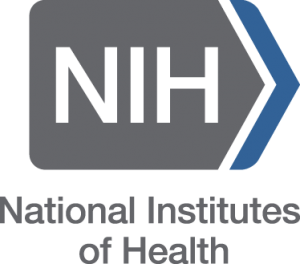 What if we could link the Framingham Heart Study (NHLBI) with Alzheimer’s health data (NIH) to better understand the correlative effects in cardiovascular health with aging and dementia? What if journal articles could directly link to repository data sets and the software used for the analysis of those same data? The number of possible discoveries could increase.
What if we could link the Framingham Heart Study (NHLBI) with Alzheimer’s health data (NIH) to better understand the correlative effects in cardiovascular health with aging and dementia? What if journal articles could directly link to repository data sets and the software used for the analysis of those same data? The number of possible discoveries could increase.
The proliferation of data, and the accompanying computing resources and new algorithms, brings new opportunities for discovery, as well as new challenges. This is especially important during our current health crisis.
This is what the National Institutes of Health (NIH) is hoping to do through their Strategic Plan for Data Science – modernize the NIH-funded biomedical data science ecosystem. Susan Gregurick, the Associate Director for Data Science, recently joined the Computing Community Consortium (CCC) council meeting and talked about the NIH’s vision and how to make a FAIR-Data Ecosystem. Researchers understand the concepts behind FAIR principles (Findable, Accessible, Interoperable, and Reusable) but need guidance on how to put them into practice.
FAIR
- Findable: Must have unique identifiers, effectively labeling within searchable resources.
- Accessible: Must be easily retrievable via open systems and have effective and secure authentication and authorization procedures.
- Interoperable: Should “use and speak the same language” via use of standardized vocabularies.
- Reusable: Must be adequately described to a new user, have clear information about data-usage licenses, and have a traceable “owner’s manual,” or provenance.
If you are interested in tackling these challenging biomedical data problems with the potential for substantial public health impact, consider applying for the NIH Data and Technology Advancement (DATA) National Service Scholar Program. The one- to two-year position will be based in one of the NIH institutes, centers, or the Office of the Director, located in Bethesda and Rockville, MD, or Research Triangle Park, NC. During this period, DATA Scholars will:
- Lead exciting, high-profile, transformative NIH projects that leverage large data sets to advance knowledge in areas of high biomedical research impact.
- Directly communicate with NIH senior leadership about projects and topics of importance for the biomedical research community.
- Collaborate with other DATA Scholars and the NIH data science community across broad disciplinary boundaries in training, discovery, and development of data science skills, methods, and tools.
- Engage with policymakers, top researchers at NIH and other institutions, and industry partners at the cutting edge of data science.
Applications are due April 30, and if you would like to learn more, see here.









